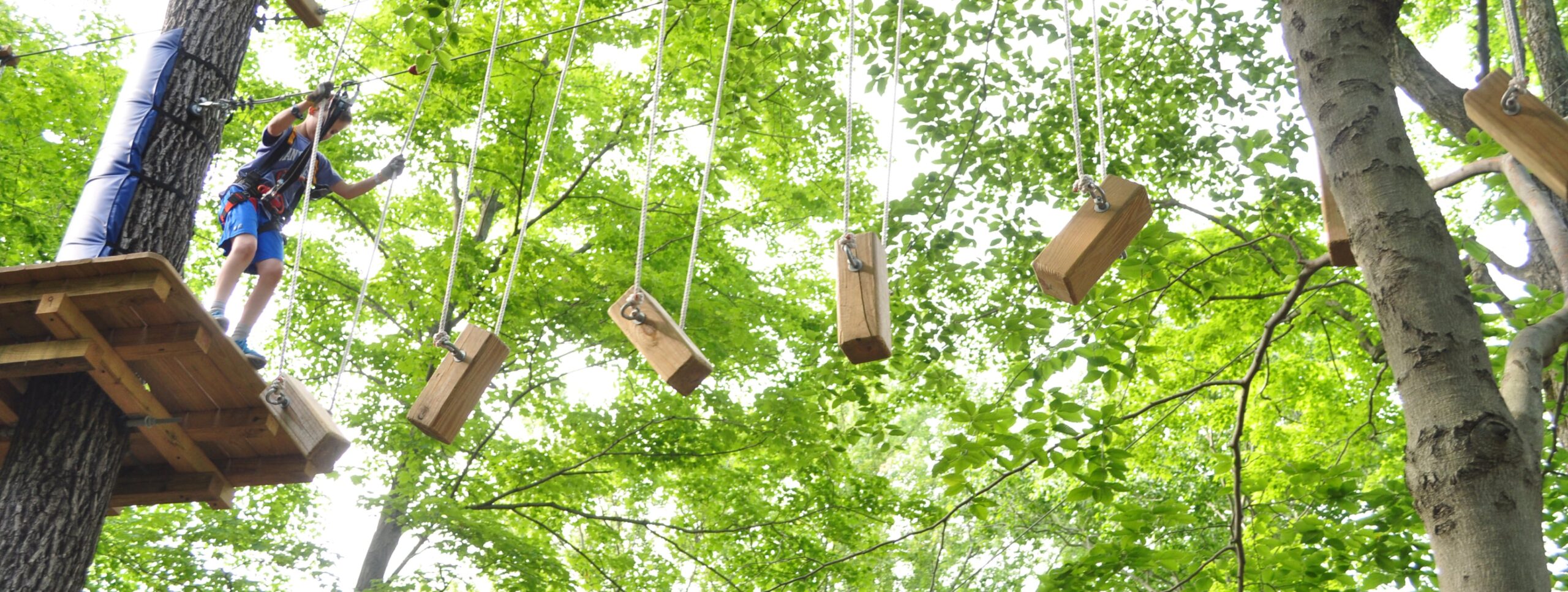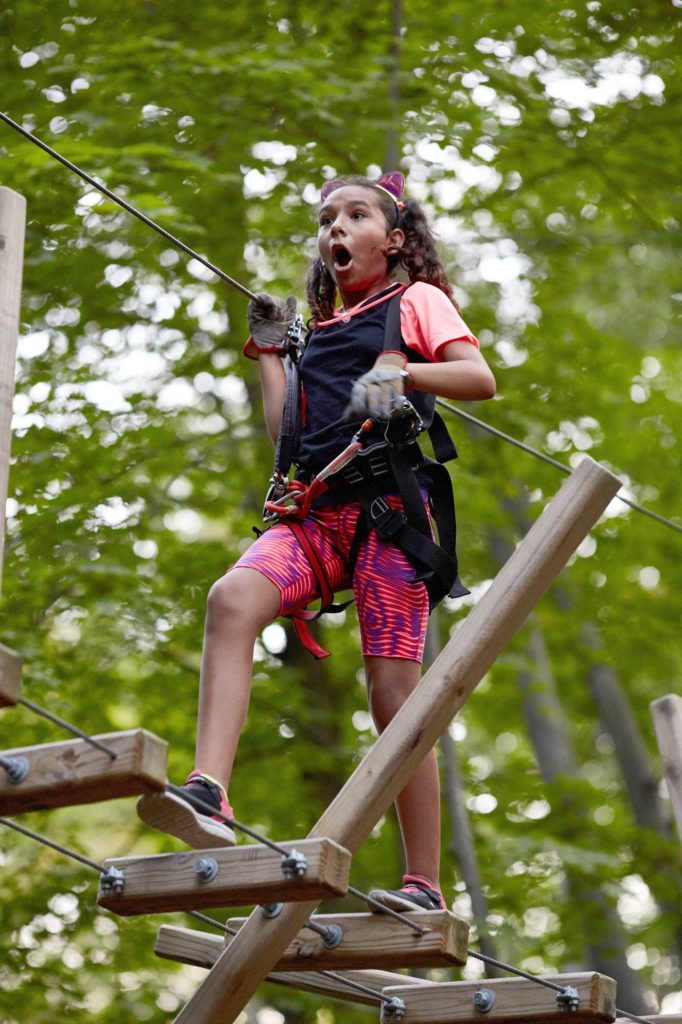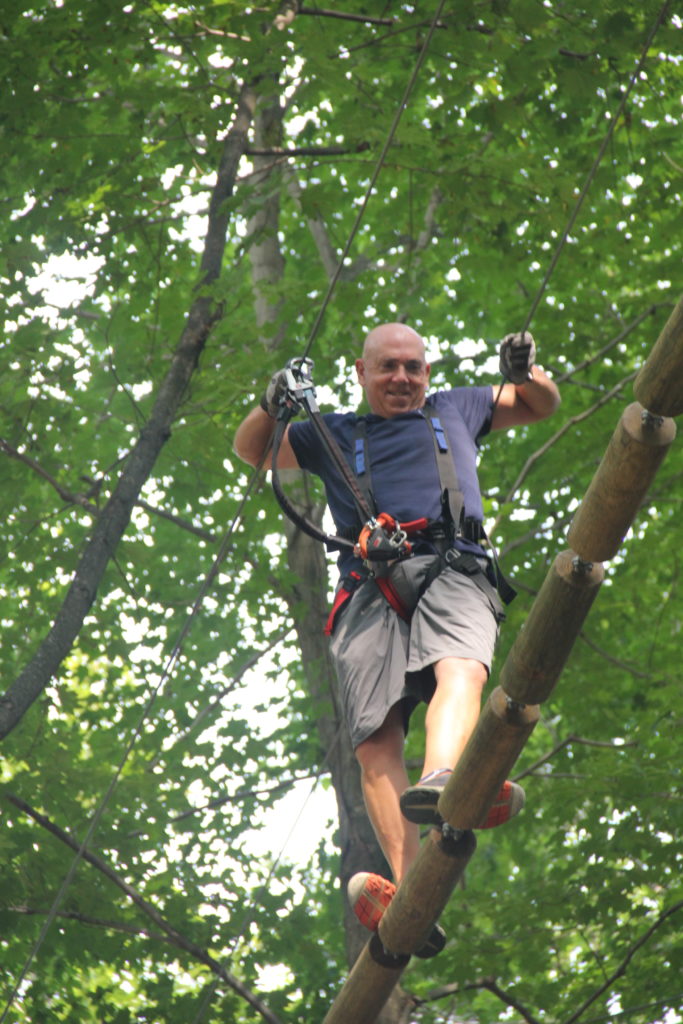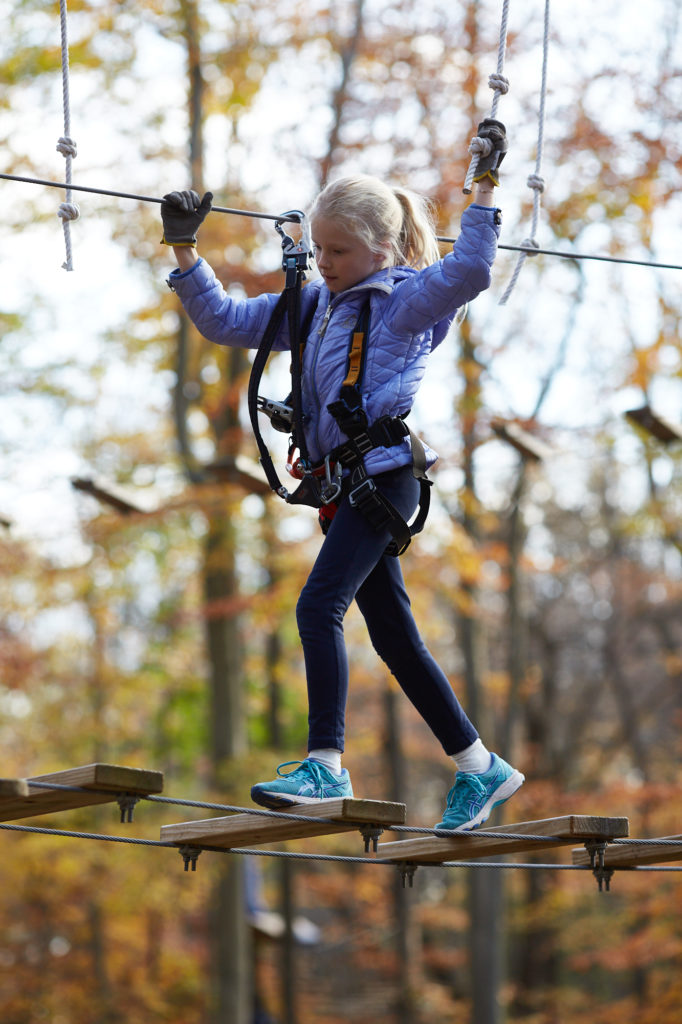As the fall approaches and students prepare for the return to school, parents must also make decisions regarding the after school care for their children. These decisions are often not made lightly; parents want to ensure that their students are not simply being “babysat”, but that they are being provided with the opportunities to extend their learning beyond the classroom. One concern that many parents have shared lately is that of how the nationwide shut down this past spring has affected the growth of their children, both socially and emotionally. While many districts do plan for in-person learning again, there is no arguing that many changes must occur that will still rob students of these essential experiences. A great after school program that aims to fill this “gap” and to bring students back together is the program offered at Boundless Adventures, an exciting aerial adventure park.
Boundless Adventures boasts three locations, so you are in luck if you are in the areas of Purchase, NY, Berlin, MA, or Kenosha, WI. At each location, children enrolled in the after school program will have the opportunity to work with peers and adults as they tackle rope and zip-line obstacle courses at various heights in the air.
With four levels of difficulty (and appropriate age requirements), these obstacle courses also feature rolling elements, bridges, balance beams, and more that will both challenge and engage your child. While this will no doubt be exciting for thrill seekers and those new to the world of adventure parks alike, the best part is that as your children climb, they are practicing the five essential elements of Social and Emotional Learning (SEL) that are not only promoted within school curricula across the country, but that are essential for developing your child into a 21st century, college and career ready global citizen.
After School Student Growth: Self-Awareness & Self-Management
The first major component of SEL is self awareness. As your child engages with the courses, they will practice close evaluation of how they are feeling. They will process and react to their thoughts and their environment, which will lead to the second component of SEL: self management. As students self reflect, they are then encouraged to set goals for themselves and take the appropriate steps to achieving these goals while also adhering to rules and regulations.
After School Student Growth: Social Awareness & Relationship Skills
Because the after school program at Boundless Adventures also breaks children into small groups, your son or daughter will be able to work with others in an environment that will help him or her to refine their social awareness, the third pillar of SEL, and arguably one of the most important. Social awareness helps students to develop respect and empathy for others, skills that are so necessary in both the work world and all social spheres. In these groups, children will support each other as they face their fears and engage in new experiences without pressure. Relationship skills, the fourth feature of SEL, will also be developed through these same experiences, and with practice of all of these skills comes the last component: responsible decision making. Through these experiences at Boundless Adventures, all children will learn more about their own abilities to problem solve and reflect on their own learning experiences.
At the conclusion of each session, staff will lead all program participants through a debriefing session. During this time, team building is emphasized, and children are able to discuss the successes and failures of the day. Most important, however, is the “takeaway” that your child will be encouraged to reflect upon. The goal of all learning is transfer: how can what was learned be applied to other scenarios and to the world around us? By selecting the after school program at Boundless Adventures, you can ensure your child will grow in not only social and emotional contexts, but in his or her ability to define who or what they want to be in this world.







